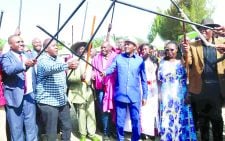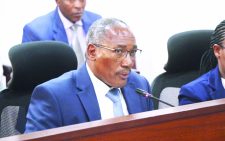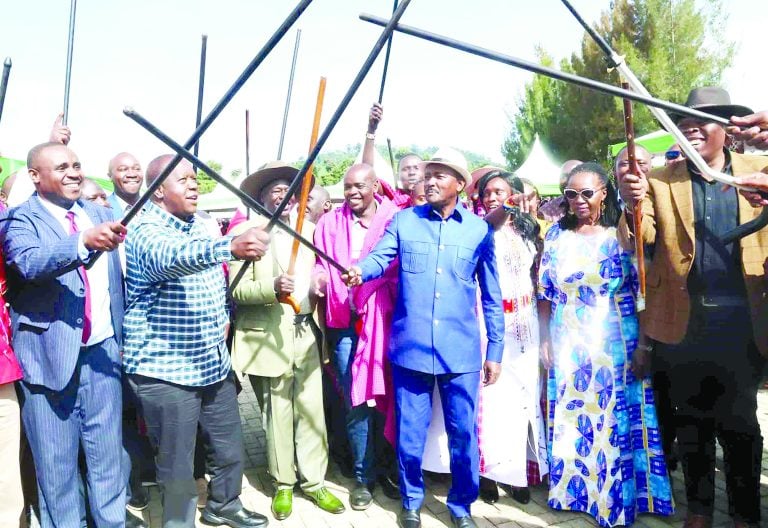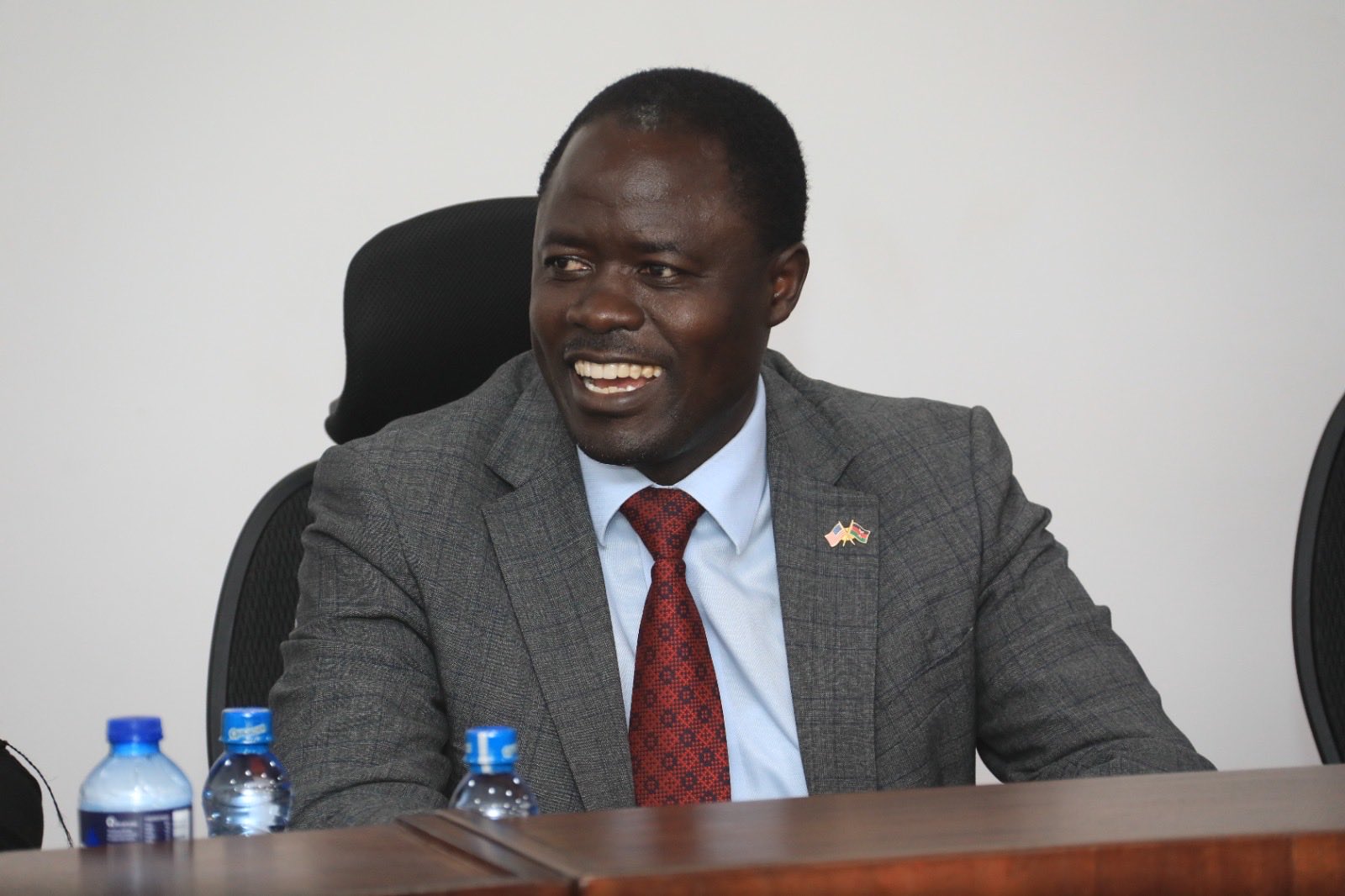Ruto-Raila alliance re-shapes politics ahead of 2027 polls
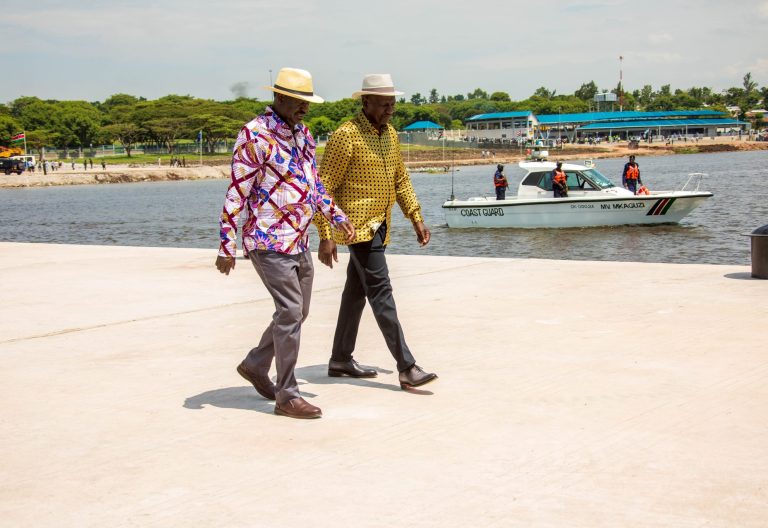
As Kenya approaches the 2027 General Election, the political arena is already heating up.
Rival factions are positioning themselves for what promises to be another fierce battle for power, with unexpected alliances reshaping traditional political dynamics.
The most striking development is the unlikely alliance between President William Ruto and ODM leader Raila Odinga.
Once bitter adversaries, these leaders now find themselves awkwardly aligned in what observers describe as either pragmatic politics or a fragile truce.
This partnership has sparked intense debate about whether Raila’s association with a government accused of human rights violations, police brutality, suppression of dissent, and corruption contradicts his traditional democratic ideals.
The alliance emerged after Gen Z protests nearly toppled the Kenya Kwanza regime, prompting Raila to support Ruto in exchange for ODM appointments to Cabinet positions.
Raila influence
Former Deputy President Rigathi Gachagua has accused Ruto of exploiting regional conflicts for personal gain and fostering ties with rebel groups in Sudan and the Democratic Republic of Congo.
Former Cabinet Minister Justin Muturi, who was dismissed following his criticism of government abductions, has been particularly scathing in his assessment.
“Whenever Ruto comes up with a project, it’s for money-making. Ruto is irredeemably corrupt,” Muturi declared.
He criticised Raila’s position, stating: “One can easily conclude that Raila is aiding crime, but time will tell. You can’t go into a fight with a pig in a pigsty and expect to come out clean.”
Muturi questioned Raila’s integrity, arguing that he has “packaged himself as a defender for justice and democracy, but he is cavorting with a president who is accused of committing injustices such as abductions of young people.”
Media scholar Dr Elias Mokua believes Raila has “lost both the plot and his identity”, describing it as “a case of a good man doing bad things”.
However, Mokua identifies three emerging forces capable of filling Raila’s space: Gen-Z activists, Gachagua, and Trans Nzoia Governor George Natembeya.
Political earthquake
Former Kanduyi MP Wafula Wamunyinyi expressed scepticism about the Ruto-Raila alliance’s electoral prospects, arguing it cannot defeat the emerging coalition around Gachagua, Wiper leader Kalonzo Musyoka, PLP leader Martha Karua, and former Interior Minister Fred Matiang’i.
“It is unbelievable. It is not Raila anymore,” Wamunyinyi observed. “He is comfortable tricking his ODM members that they are neither inside nor outside government,” Wamunyinyi stated.
The most significant threat to Ruto’s re-election prospects may come from Mt. Kenya, where former rivals Martha Karua and Rigathi Gachagua are hinting at a political alliance.
In a striking turn of events, these 2022 opposing running mates appear to have buried their differences to unite against Ruto.
Karua, planning to launch the People’s Liberation Party in February 2026, recently declared: “I look forward to working with you, Gachagua. We will not allow President Ruto to graduate into a tyrant.” This unexpected alliance could fracture Ruto’s Mt. Kenya support base, already weakened by Gachagua’s impeachment.
Political analyst Benson Omondi of Mombasa’s Kongowea’s Bunge la Mwananchi noted: “Ruto knows he can’t rely on inheriting Raila’s support base by default. That’s why he’s back on the ground, campaigning early.”
The partnership between Ruto and Raila originated from Ruto’s support for Raila’s bid for the African Union Commission chairmanship.
According to insiders, Ruto personally approached Raila, proposing the AU position and promising government backing.
Ruto’s strategy was straightforward: remove Raila from local politics by elevating him to the continental stage, potentially inheriting his voter base.
However, Raila’s defeat in the AU race left both leaders politically exposed and their handshake under greater scrutiny.
Shifting allegiances
The broad-based government has attracted surprising converts.
Prof Makau Mutua, once a fierce Ruto critic who famously said he would “head in the opposite direction” when sensing Ruto’s proximity, now serves as senior advisor on constitutional affairs in the President’s office.
“I believe my expertise will serve the country well,” Mutua stated, dismissing criticism from ODM hardliners.
Even more remarkably, Raila has begun praising the Ruto administration during recent visits to Homa Bay, acknowledging that Kenya Kwanza is implementing many former Azimio policies.
“All these were also part of our Azimio plans. Kenya Kwanza has followed our example, and that’s a good thing,” Raila observed.
In traditionally ODM strongholds, the political tide appears to be shifting. Treasury CS John Mbadi expressed confidence that Luo Nyanza will support Ruto in 2027.
“Luos are loyal. When you treat them well, they respond. I can authoritatively say Luo votes are locked for Ruto,” Mbadi stated.
Other ODM heavyweights, including CS Wycliffe Oparanya, Energy CS Opiyo Wandayi, and Siaya Senator Oburu Oginga, now support the broad-based government framework and Ruto’s re-election bid.
Opposition concerns
Former Mombasa Governor Hassan Joho, now Mining and Blue Economy CS, has assured Ruto of Coast region support through 2032, declaring: “Ruto is a founding member of ODM. This is a reunion.”
Critics worry about the implications of this political realignment.
Kisii Senator Richard Onyonka cautioned: “This handshake undermines constitutional oversight. Without a real opposition, they can do as they please.”
However, political risk analyst Alenga Torosterdt doubts a viable third-force candidate will emerge, citing poor organisation among opposition figures like Kalonzo and Karua.
Veteran analyst Herman Manyora believes Raila’s influence remains significant: “Many believe Raila must rule this country, and they’ll urge him to stay. In places like Luo Nyanza, his name alone wins elections.”
